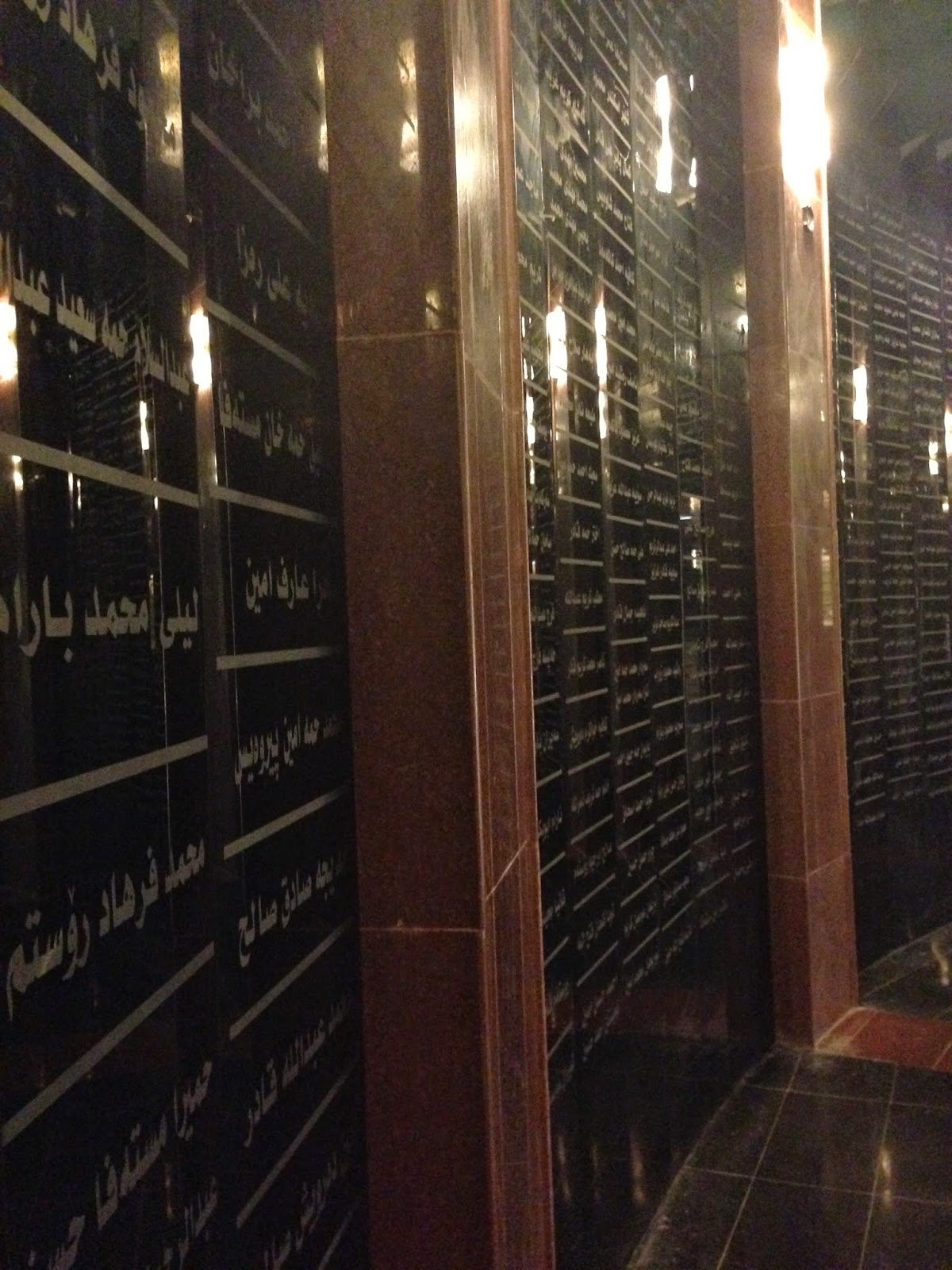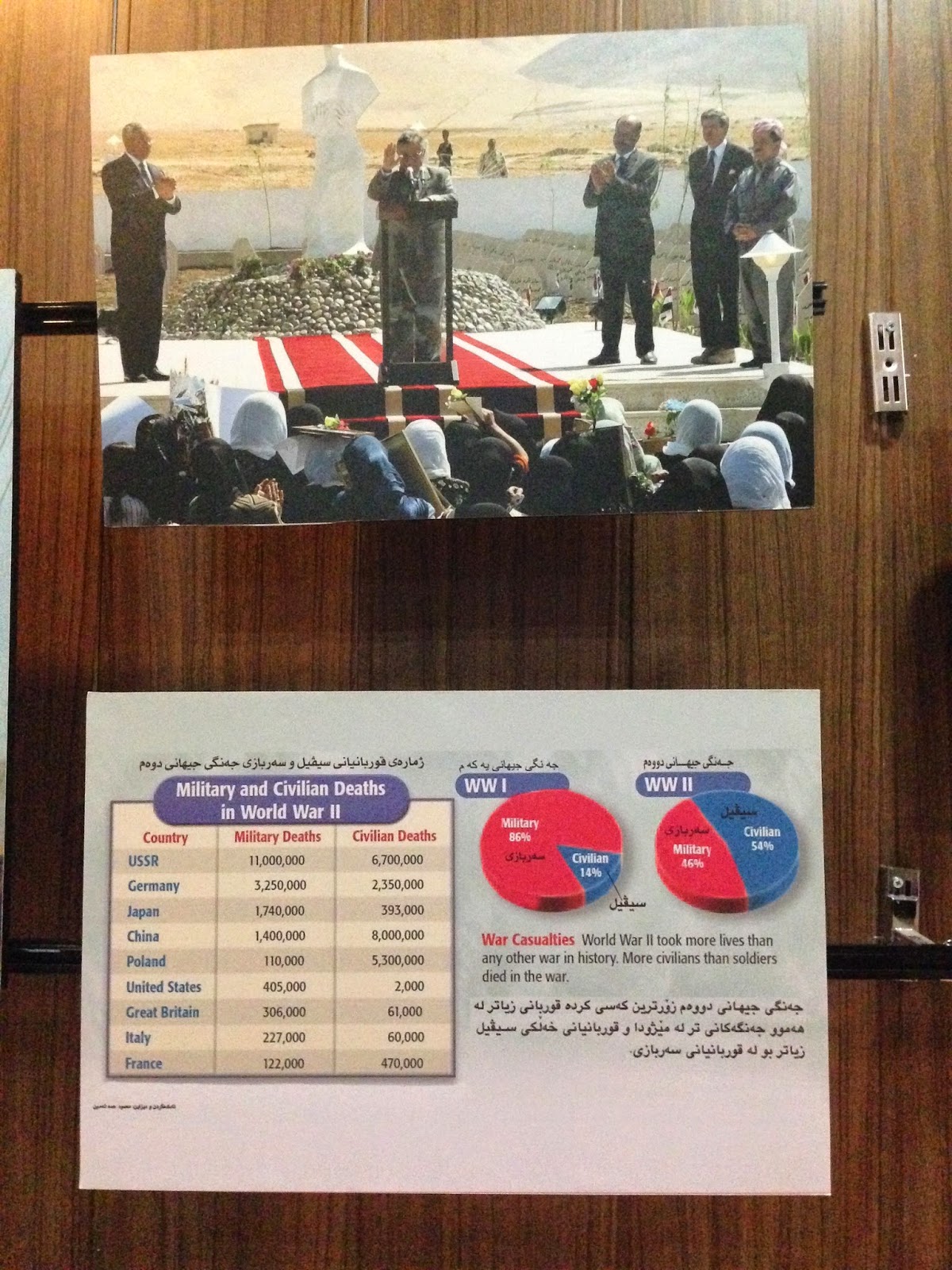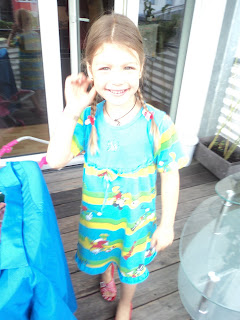On our mini trip to Halabja, we visited the Halabja Monument and Peace Museum, which showcases the images, films, and documents that represent the chemical gas attacks. The gas attacks mainly took place on March 16, 1988, and killed over 5000 people in just about an hour. Many people were still sleeping, some were on their way to school, some were making breakfast when Saddam Husseins army dropped the chemical gases on the town. Some civilians who live don the outskirts of town managed to escape on foot, but they were still affected by the gases and have illnesses or defects related to the chemicals to this day.
The monument we visited was paid for the Kurdish Regional Government, and is an impressive figure seen as you make your entry into Halabja.
The monument we visited was paid for the Kurdish Regional Government, and is an impressive figure seen as you make your entry into Halabja.
In the first part of the Museum, we see haunting exact replicas of the scenes found the morning of the attack, including the dead men, women, children, and animals found on the streets.
In another room, the name of every single known victim of the attacks was written on a black marble on the walls.
The museum also dedicated some space to discuss war stats and peace.
The outside of the museum features some beautiful views of the city of Halabja, as well some not so beautiful views of military tanks used by Saddam Hussein and his men during the attacks on the Kurdish people.

















































